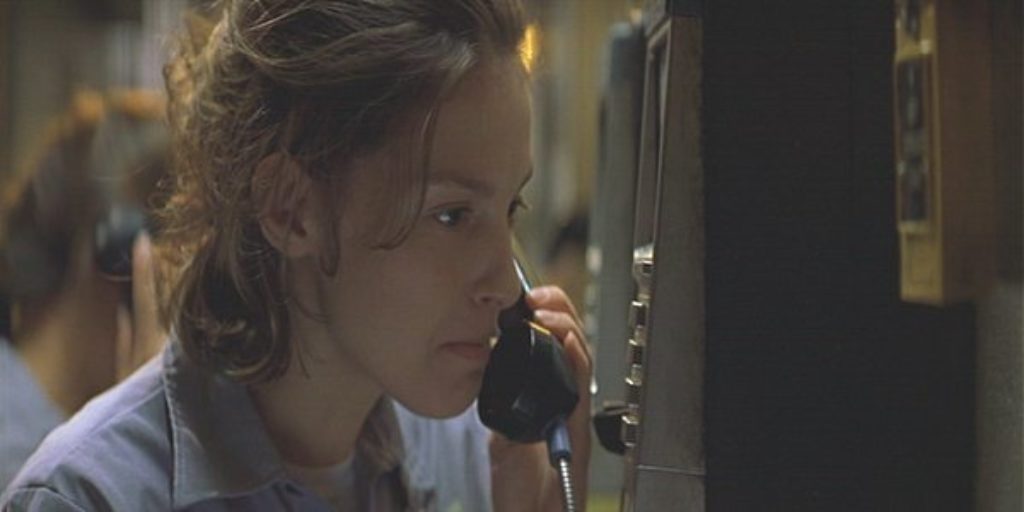
Double Jeopardy is what The Fugitive might have degenerated into without Harrison Ford. Tommy Lee Jones finds himself firmly typecast as an overbearing, relentless bloodhound. The plot revolves around a young mother, Libby, her beloved child … and not-so-beloved husband, Nick. After the five-minute obligatory depiction of familial bliss, dear-old-hubby stages his own death, leaving Libby framed for it. He gets her son, her best friend as a wife and the $2 million from his own life insurance policy. She gets hard time. Six years pass (marked by quick, uneventful prison vignettes) and Libby gets paroled. Lehman shows up as her parole officer, so when she jumps parole to track down her husband and child (she aims to kill one and keep the other), he’s hot on her trail.
Positive Elements: Libby loves her son more than life itself. Heart-wrenching scenes show mother and son as they’re pulled apart by Nick’s sinister connivings.
Spiritual Content: Libby’s prison mates encourage her to lie her way past the parole board by telling them she’s into “that Jesus-born-again stuff.”
Sexual Content: An explicit sex scene is shown between Libby and her husband right before he betrays her. The couple is shown completely naked while in the act. Later, dialogue includes references to lewd sexual acts.
Violent Content: On the night her husband “dies” onboard a sail boat, Libby wakes up and finds herself covered in blood. The deck is also splotched with blood and a stained knife lies near the rail. After her release from prison, Libby’s search for her son and husband includes breaking and entering, smashing into a car with her truck, driving a car off a ferry into the water, fisticuffs with Lehman and several scenes of gunplay. The film concludes with a gun killing at point-blank range. Libby uses her gun to escape after her husband entombs her in a casket (with its deceased occupant).
Crude or Profane Language: A dozen uses of the f-word and nearly as many s-words chokes up the dialogue with one exchange between another paroled woman and Lehman proving particularly offensive. God’s name is misused quite a bit as well.
Drug and Alcohol Content: Lehman is an alcoholic. He carries a flask of alcohol with him and uses it to temper his disillusionment and despair. Cigars are smoked on occasion.
Summary: Once again Hollywood has made a film that celebrates doing all the wrong things for all the right reasons. Moviegoers will empathize with Libby’s profoundly unfortunate situation. It seems easy to excuse the parade of illegal and dangerous things she does because she’s been wronged and she’s looking for her son. Situational ethics are rationalized in emotional turmoil. Libby gets though her prison time fueled by hate and a desire for revenge. When released, she gives that hate a voice in her drive to track her husband down. Even if the film’s obscene language, sex and violence were to be overlooked (obtuse as that may be), this twisting of truth, morality and ethical behavior should not.
